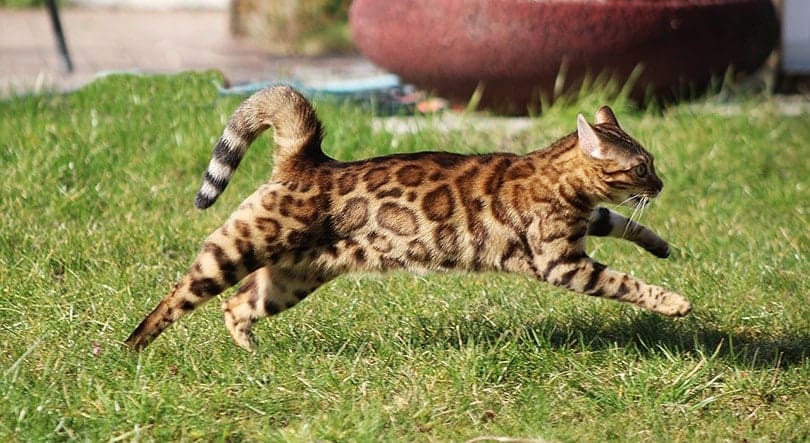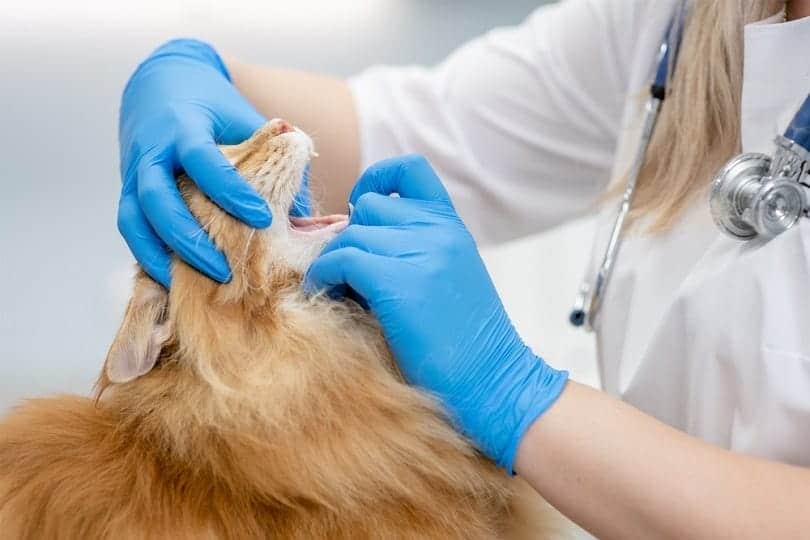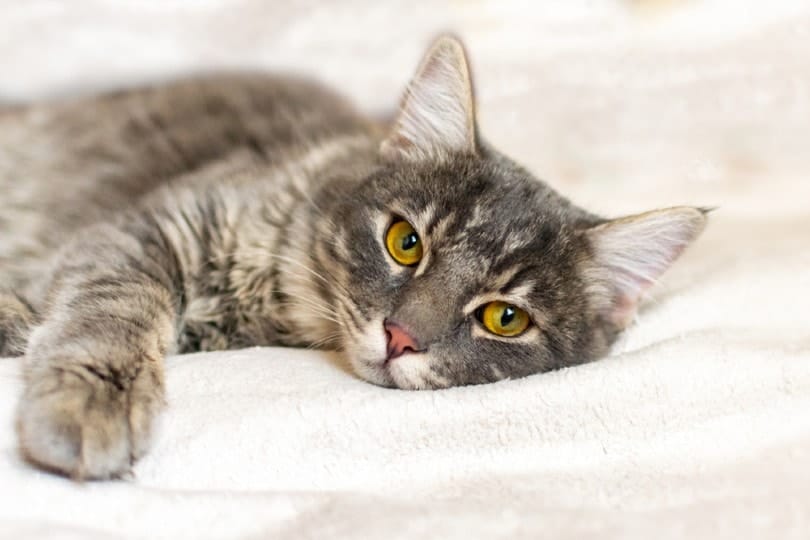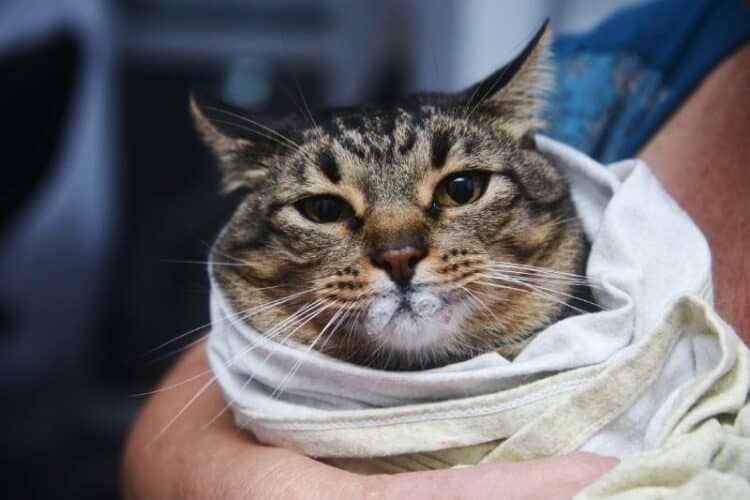There’s nothing more terrifying than seeing a strange symptom appear in your cat, and foaming at the mouth is one of the scariest. In pop culture, a cat or dog foaming at the mouth pretty much guarantees that they’ve got rabies. But in real life, the prognosis isn’t so dire.
There are lots of reasons—both serious and minor—why a cat might foam at the mouth. Here are six of the most common ones.
The 6 Reasons Why Your Cat is Foaming at the Mouth
1. Overexertion
One of the most common—and least serious—causes of foaming at the mouth is overexertion. Unusual exercise can cause panting and drooling to turn into foam that looks scary, but it is ultimately harmless. This is especially true if your cat is already prone to drooling. If this is the case, give your cat a cool, clean bowl of water and some rest. If it’s a hot day, watch out for signs of heat exhaustion that might be compounding with the overexertion.

2. Anxiety or Stress
Another common cause of frothing or foaming at the mouth is extreme anxiety or stress. Panic responses and trauma can cause hypersalivation, rapid breathing, and other changes that can create foam. In the case of anxiety, stress, or trauma, the foam itself isn’t a major concern, but the underlying source of stress may be. It’s a good idea to get your cat evaluated by a professional to find out the best way to help your cat deal with its trauma or anxiety.
3. Dental Disease
Dental disease can cause foaming at the mouth as well. This can be caused by a range of dental issues, including tooth abscesses, oral injury, oral tumors, and viral ulcers. Most of the time, you’ll see other symptoms, such as difficulty eating, bad breath, and signs of pain. Many dental diseases can be prevented by regular tooth cleaning. If your cat is dealing with dental disease, seeking out a veterinary dentist is a must.

4. Poisoning
Ingestion of harmful substances can have a variety of symptoms, including foaming at the mouth. Even vigilant owners can’t always keep their cat away from all household cleaners, foods, insecticides, plants, and other possible sources of poisoning. If your pet is foaming at the mouth, look for other signs of poisoning such as vomiting, breathing difficulties, collapse, lethargy, or fever. If your cat has been poisoned by an unknown substance, contact your vet right away.
5. Seizure
Generalized seizures in cats can have classic symptoms like collapsing to the ground and twitching, but that’s not the only way they can manifest. Sometimes, foaming or drooling at the mouth comes along with other easily detectable seizure symptoms. Other times, it might just seem like your cat is stiff or distracted other than the drool or foam. Most seizures last for under five minutes, so your cat should return to normal quickly. However, it’s always a good idea to get your cat to a vet to find out the underlying cause if this happens.

6. Rabies
Rabies is rare in domestic cats because it’s easily prevented through vaccinations. However, if your cat isn’t up-to-date on vaccines, it’s still possible. Rabies generally starts with subtle signs like small changes in energy and temperament. However, in the later stages of the disease, you might see foaming at the mouth or excess drooling along with extreme aggression or depression, difficulty moving or breathing, and weakness or paralysis.
Rabies is extremely dangerous to humans and animals and has no known cure once symptomatic. It is generally spread through fluid contact, such as saliva infecting a bite. If you suspect your cat has contracted rabies, use extreme caution. Unvaccinated cats infected with rabies should be put to sleep.
Final Thoughts
As you can see, mouth foam can be caused by a whole host of problems. Although it’s associated with some serious diseases like rabies, that’s not the whole picture. There are lots of other, less dramatic conditions that can cause foaming.
Don’t ever approach a strange animal that’s foaming at the mouth, but if your own pet is showing this symptom, it’s generally safe to evaluate it as long as it’s not being aggressive. Once you have a good idea of the cause, you can decide whether your cat’s symptoms call for a vet visit or not.
Featured Image Courtesy: Shutterstock














